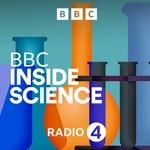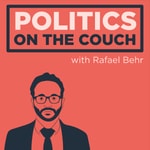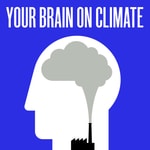BBC Inside Science – Details, episodes & analysis
Podcast details
Technical and general information from the podcast's RSS feed.

BBC Inside Science
BBC Radio 4
Frequency: 1 episode/7d. Total Eps: 609

A weekly programme that illuminates the mysteries and challenges the controversies behind the science that's changing our world.
Recent rankings
Latest chart positions across Apple Podcasts and Spotify rankings.
Apple Podcasts
🇨🇦 Canada - science
01/08/2025#89🇬🇧 Great Britain - science
01/08/2025#12🇫🇷 France - science
01/08/2025#62🇨🇦 Canada - science
31/07/2025#54🇬🇧 Great Britain - science
31/07/2025#12🇨🇦 Canada - science
30/07/2025#53🇬🇧 Great Britain - science
30/07/2025#10🇩🇪 Germany - science
30/07/2025#99🇨🇦 Canada - science
29/07/2025#66🇬🇧 Great Britain - science
29/07/2025#8
Spotify
🇬🇧 Great Britain - science
01/08/2025#26→🇬🇧 Great Britain - science
31/07/2025#26→🇬🇧 Great Britain - science
30/07/2025#26→🇬🇧 Great Britain - science
29/07/2025#26↗🇬🇧 Great Britain - science
28/07/2025#27→🇬🇧 Great Britain - science
27/07/2025#27↗🇬🇧 Great Britain - science
26/07/2025#28→🇬🇧 Great Britain - science
25/07/2025#28↗🇬🇧 Great Britain - science
24/07/2025#31↗🇬🇧 Great Britain - science
23/07/2025#33↗
Shared links between episodes and podcasts
Links found in episode descriptions and other podcasts that share them.
See allRSS feed quality and score
Technical evaluation of the podcast's RSS feed quality and structure.
See allScore global : 43%
Publication history
Monthly episode publishing history over the past years.
Beavers of London
jeudi 12 septembre 2024 • Duration 28:10
The Ealing Beaver Project has found success as two new beaver kits have been born in a park in London after being reintroduced last October.
Marnie visits the site to learn more about the benefits they bring - but beavers are just a drop in the river of urban rewilding. We find out what the practicalities and pitfalls of letting nature take back space in our cities are.
Do you feel like your dog is watching you? You're probably right. Zoologist and broadcaster Jules Howard ponders on the human-watching acuity of our beloved pets.
And our guts are not the only places where bacterial communities thrive, new research tells us that our microwaves also have a microbiome. Should we be worried?
Presenter: Marnie Chesterton Producers: Ella Hubber, Sophie Ormiston and Gerry Holt Editor: Martin Smith Production Co-ordinators: Jana Bennett-Holesworth and Andrew Rhys Lewis
Going for gold
jeudi 5 septembre 2024 • Duration 28:02
Today we will be going for gold in more ways than one.
Inga Doak, the Head of Sustainability at The Royal Mint, reveals how the company plan to ‘urban mine’ gold from household electronic waste and turn it into jewellery. But with tens of millions of tonnes of e-waste piling up every year, the environment policy adviser at the Royal Society of Chemistry, Izzi Monk unpacks how the UK can clean up its act.
Vic puts her stable boots on to visit some very pampered thoroughbred foals to find out what their poo can reveal about their future success on the racecourse.
From horses to humanity, sports geneticist Alun Williams discusses how our genetic make-up could determine whether or not we are destined for gold at the Olympics.
Plus, Roland Pease channels his inner child to investigate his youthful obsession with Mars as NASA looks for new microbial life on the red planet.
Presenter: Victoria Gill Producers: Ben Mitchell and Ella Hubber Editor: Martin Smith Production Co-ordinator: Jana Bennett-Holesworth
How do we solve antibiotic resistance?
jeudi 4 juillet 2024 • Duration 28:02
The looming danger of antibiotic resistance may have fallen out of the public consciousness but is still very much in the mind of those in public healthcare and research. As promising new research is published, the University of Birmingham’s Laura Piddock and GP Margaret McCartney get to the bottom of why antibiotic resistance is still so difficult to tackle.
Marine biologist Helen Scales joins us in the studio to talk about her new book “What the Wild Sea Could Be” which uses changes in the Earth’s past to predict what we can expect to happen to our oceans in the coming years.
Cosmologist Andrew Pontzen speculates on what happens in and around the extreme environment of a black hole as news of the first observations of the “plunging zone” comes to light.
And as the EU head to ban smoky flavoured crisps we ask what the science behind this decision is with Food scientist Stuart Farrimond.
Presenter: Marnie Chesterton Producers: Ella Hubber and Hannah Robins Researcher: Caitlin Kennedy Editor: Martin Smith Production Co-ordinator: Jana Bennett-Holesworth
Is the James Webb Space Telescope too good?
jeudi 13 octobre 2022 • Duration 28:53
The James Webb Space Telescope continues to beam exciting data back to earth from exoplanet systems, galaxies and stars further away than we’ve ever seen before. But what happens to that data when it reaches us? We spoke to Julien De Wit from MIT about how exactly we process the vast amounts of information sent back to us from the telescope and how sometimes our computing systems just can't keep up.
The British Science Festival is taking place in Leicester this week, and diversity and inclusion is one of the top priorities. Many groups are still alarmingly under-represented in STEM including women, Black and Minority Ethnic people Angela Saini and Dr Kate Clancy explain how we got here and just how alienating science can feel. To explore possible solutions we spoke to the incoming president of the British Science Association and CEO of Stemettes Anne-Marie Imafidon MBE, Early career Engineer and Chairperson of Stemette Futures Youth Board Floriane Fidegnon-Edoh and Physicist Dr Jessica Wade who works in public engagement in STEM and advocacy for women in physics.
Finally, are colourful birds more vulnerable? Researcher Dr Rebecca Senior from Durham University takes us through how the pet trade affects bird conservation.
Presenter: Victoria Gill Producers: Emily Bird, Julian Siddle and Harrison Lewis
Ancient Amputation
jeudi 6 octobre 2022 • Duration 28:31
The discovery of a body missing a foot in a thirty one thousand year old grave suggests our ancient ancestors may have been capable of performing complex surgery. The foot seems to have been cleanly amputated, and the patient survived for several years afterwards. Dr Tim Maloney from Australia’s Griffith University made the find and Charlotte Roberts Emeritus Professor of Archaeology at Durham University who researches the evolution of medicine gave us her analysis.
Craters from meteorites aren’t always easy to find, they can look similar to other geological features. However techniques more closely associated with forensic science are helping to provide clues. it’s all in the way the incoming asteroid or meteorite burns everything in its path says Dr Ania Losiak from the Institute of Geological Sciences, Polish Academy of Science.
The Greenland ice sheets are melting, a new analysis paints a concerning picture about the impact on sea levels. Researcher Jason Box takes us out onto the ice to see this process in action.
And why do chimpanzees drum? Language researchers Catherine Hobaiter and Vesta Eleuteri have been following them around the jungles of Uganda to find out.
Dealing with drought
jeudi 29 septembre 2022 • Duration 31:15
As parts of England enter drought conditions we ask what are the drivers for drought and what can we do about it? With Dr Jess Neumann, Hydrologist at Reading University, Aidan McGivern meteorologist at the Met Office and Professor Richard Betts, Chair in Climate Impacts at University of Exeter.
What influence do Scientific Advisors really have on government? We explore the tricky issue with science writer Philip Ball.
Are there just too many satellites now orbiting the earth? Astronomers are increasingly finding their presence is interfering with astronomical observations. Jane Chambers reports from Chile.
And what is mucus actually for and how did it evolve? Omer Gokcumen, Associate Professor of Biological Sciences and Stefan Ruhl, Professor of Oral Biology at the University at Buffalo reveal its origins in our aquatic ancestors and its vital role in mouth hygiene.
Presented by Alex Lathbridge Produced by Julian Siddle Assistant Producer Emily Bird
Return of the ozone hole
jeudi 22 septembre 2022 • Duration 27:27
Research on recent extreme fire events shows they have a direct effect on the size of the seasonal ozone hole over Antarctica. Climate scientist Jim Haywood is concerned more frequent and extreme fires predicted by climate models could negate all the work done to reduce the ozone depleting chemical pollutants which became such a concern more than 30 years ago.
We look at two very different approaches to marine conservation , and discuss how the combination of monitoring and surveillance technology and engaging with local people could help preserve many marine species .
And it's festival time in Edinburgh , but we take a look at its more sinister side. How when the city became a centre for the study of anatomy it also developed a dark underbelly of serial killers and body snatchers. A new exhibition clears up some of the myths associated with this period.
And the Royal Society has announced its annual medals, a variety of awards for leading scientists. This year there is a special award for Laboratory technicians, the unsung heroes of science experiments. We speak to the winner and also the BBC journalist who as a student destroyed one of his experiments.
A Possible Sequel to the Dinosaur Armageddon
jeudi 15 septembre 2022 • Duration 30:34
Did the Chicxulub meteor that did for the dinosaurs have a smaller companion? Dr Uisdean Nicholson and Professor Sean Gulick talk to Vic Gill about the newly discovered Nadir Crater. Located on the other side of the Atlantic, it’s raising questions about whether Earth was bombarded with not one, but two, meteors on the day the dinosaurs were wiped out.
Back in January, the Hunga-Tonga Hunga-Ha’apai volcano in Tonga erupted explosively, triggering a massive tsunami across the Pacific. Now, engineers are remotely scanning the volcano from 16,000km away in Essex. Ashley Skett from SEA-KIT International and Dr Mike Williams from NIWA describe how a robotic vessel is mapping the Tongan seabed.
And we get to the bottom of the mystery surrounding a 500-million-year-old fossil…quite literally. The microscopic, fossilised beast, which has no anus, was previously thought to be our earliest known ancestor. Emily Carlisle from the University of Bristol explains how the theory was debunked.
Presented by Victoria Gill Reporting by Emily Bird Produced by Alex Mansfield
Amplified Arctic Amplification and Microclot Clues to Post-Viral Disease
jeudi 8 septembre 2022 • Duration 27:55
Professor Anna Hogg joins us on today’s programme for some polar explorations, we speak to one team recalculating arctic warming estimates and another who are storm chasing in Svalbard. Antii Lipponen from the Finnish Meterological Institute talks us through how quickly the arctic is really warming and Professor John Methven and PhD student Hannah Croad from the University of Reading send greetings from Svalbard where they’re chasing arctic storms.
Also, new evidence for a possible biomarker of ME/Chronic Fatigue Syndrome - a condition associated with debilitating tiredness and brain fog similar to Long Covid. The microclots, described by Professor Doug Kell at the University of Liverpool and Professor Resia Pretorius of University of Stellenbosch, suggest a possible inflammatory cardiovascular element to the disease which might one day forge a path towards new treatments.
And how can trees help us in a heatwave? Vic joined Dominik Spracklen from the University of Leeds on a stroll around a Cumbrian forest to explore the cooling potential of forests.
Presented by Victoria Gill Reporter Emily Bird Produced by Alex Mansfield
Shaun The Sheep Jumps Over The Moon, Bronze Age Kissing and PPE Rubbish
jeudi 1 septembre 2022 • Duration 31:28
ESA announce that Shaun The Sheep will fly around the moon this month aboard Artemis-1 mission. Philippe Deloo tells Gaia Vince what's in store for the woolly astronaut this month. Philippe is the team lead on the European Service Module, the part of NASA's Orion spacecraft which will be the workhorse of the new moon missions, ferrying four astronauts at a time to the moon and perhaps even beyond one day. This first Artemis mission, slated for launch 29th August, will check all the engineering bravado of the new launch and orbital systems ready for subsequent human passengers in a couple of years.
Christiana Scheib, of the Universities of Cambridge and Tartu, is part of a team who seem to have pinpointed in time the moment the Herpes virus that causes cold sores first spread across human populations. By obtaining genomes of HSV1 from four individuals who died between the iron age and medieval times, their analysis suggests an initial emergence sometime in the Bronze age. The intriguing hypothesis that accompanies the discovery is that the variant's emergence was facilitated by a new trend among bronze age folk of romantic kissing. But as she describes, it's hard to be certain for "there is no gene for kissing".
One way of restricting the spread of many viruses is of course various forms of PPE. The last few years have seen billions more items of PPE used on our planet, often without a clear plan for their disposal, and they get accidentally dropped and even deliberately dumped all over the world. Alex Bond of the Natural History Museum at Tring observes and catalogues rubbish affecting wildlife. He took the BBC's Victoria Gill on a walk down a canal in Salford to discuss the issues with the tissues.
Presented by Gaia Vince Produced by Alex Mansfield

